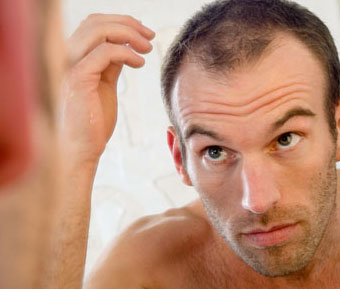As more and more research is done in the area of hair growth and hair care, better and more effective hair growth treatments are constantly being developed. Today we do understand not only how to prevent hair loss but even how to help the body to re-grow hair, giving hope to millions of individuals struggling with hair loss worldwide.
Hair hygiene & home remedies
Regular shampooing, controlling dandruff and scalp itchiness and maintaining good hair hygiene is important. Home remedies for hair growth such as massage and hot oil treatments are also effective for arresting hair loss in some case.
Eating a balanced diet rich in nutrients such as Vitamin B12, biotin, omega 3, zinc and iron is also important for proper hair growth.
Treating underlying conditions
 Hormonal changes relating to menopause, pregnancy and childbirth as well as hormonal imbalances of the thyroid gland or other hormonal problem caused by stress can contribute to hair loss. Treating these hormonal imbalances can help resolve the hair loss issue.
Hormonal changes relating to menopause, pregnancy and childbirth as well as hormonal imbalances of the thyroid gland or other hormonal problem caused by stress can contribute to hair loss. Treating these hormonal imbalances can help resolve the hair loss issue.
Other medical conditions such as fungal infections, rashes, diabetes, sexually transmitted and other diseases could also contribute to hair loss. Curing the root cause can help to resolve the hair loss, which in these cases, may be a mere side effect and not the main problem.
Hair growth supplements
Vitamin supplements, fish oil supplements and certain herbal supplements can also help to redress hair loss and to stimulate regrowth. However the efficacy and success of these supplements can vary from person to person and depending upon the kind and extent of hair loss involved.
Medication for hair growth
Depending upon the type of hair loss one has (male pattern, female pattern, Alopecia areata, etc.) hair loss medications can be used to treat the hair loss. In some severe cases of hair loss, a scalp biopsy may be required to determine the underlying cause.
The main pharmaceutical based hair growth treatments are minoxidil (which goes by the trade name Rogaine and others), finasteride (which is marketed under the brand name Propecia), and dutasteride (marketed as Avodart).
Newer treatments for hair re-growth called prostaglandin analogs are also currently being explored. Many of these treatments are available over the counter and others have to be prescribed by a registered practitioner. They may be in the form of oral pills or capsules, topical applications, foams, lotions and creams.
Laser treatment for hair loss
In this, low intensity lasers are used to target hair follicles. This helps to stimulate the growth of hair using a process called photo-biostimulation to help regrow lost hair as well as thicken existing growth.
Hair transplants
In this procedure, follicular units of a few hairs are grafted on to bald areas of the skin from other areas.
Hormone therapy
Where the cause of hair loss is temporary hormonal changes such as pregnancy and childbirth, no treatment may be needed, and in most cases the problem may be self limiting. However when some hormonal imbalances such as hypothyroid, or menopause are the cause of hair loss, hormone therapy may be required.
Genetic therapy and regeneration of hair follicles
Various studies have been started to explore the role of genetics in hair loss; and to reverse or control the process. Hair multiplication or hair cloning is another mythology being explored to treat hair loss. However none of these therapies are currently available for public use.



